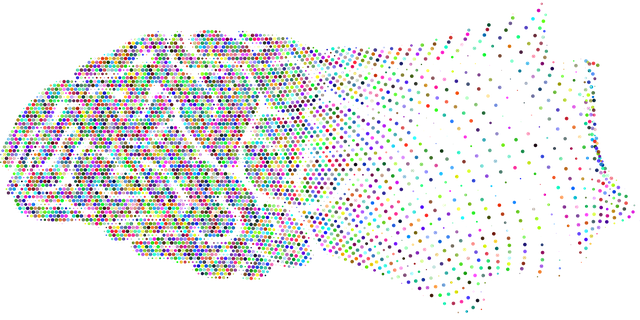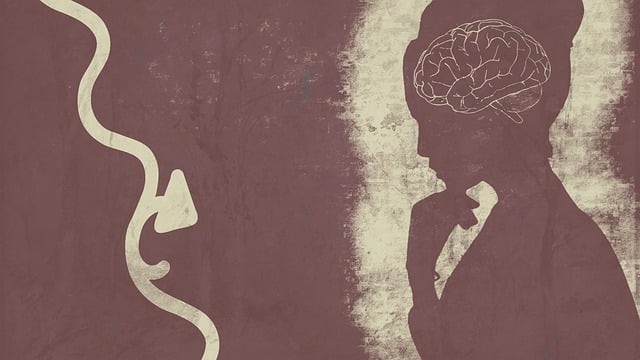The media's portrayal of mental health significantly shapes societal understanding and perceptions, especially in cities like Colorado Springs where access to substance abuse therapy is crucial. Accurate, empathetic representations reduce stigma and normalize conversations about mental well-being, while negative depictions can exacerbate it. Therefore, Mental Health Education Programs integrating media literacy and critical thinking are essential to educate audiences on media influence, enabling them to recognize signs of mental illness and provide effective interventions. Colorado Springs leads a proactive shift in addressing drug abuse through authentic media portrayals, destigmatizing mental illness and promoting hope. Responsible media portrayal, collaboration between media, healthcare professionals, and community organizations, and integration of mindfulness practices are key to advocating for better mental health support, including Colorado Springs Drug Abuse-Substance Abuse Therapy.
In today’s media landscape, the representation of mental illness plays a pivotal role in shaping public perception and understanding. This article explores the profound impact of media portrayal on mental health, specifically focusing on Colorado Springs as a case study for addressing drug abuse and substance abuse therapy through responsible storytelling. We delve into effective strategies to enhance positive mental illness representation and advocate for fostering change in media to better support mental health initiatives, akin to how Colorado Springs has navigated challenges related to drug abuse.
- Understanding the Impact of Media Portrayal on Mental Health Perception
- The Current State: How Colorado Springs Addresses Drug Abuse and Substance Abuse Therapy in Media
- Effective Strategies to Enhance Positive Mental Illness Representation
- Fostering Change: Encouraging Responsible Media Portrayal for Better Mental Health Support
Understanding the Impact of Media Portrayal on Mental Health Perception

The media has a profound impact on shaping societal perceptions and understanding of mental health issues. Portrayals of individuals with mental illnesses in movies, television shows, and news coverage can either perpetuate harmful stereotypes or challenge existing narratives. When media platforms depict mental illness accurately and empathetically, they play a crucial role in reducing the stigma associated with these conditions. This is especially significant for cities like Colorado Springs where access to substance abuse therapy and other mental health services is vital.
A positive media representation can provide crisis intervention guidance by normalizing conversations around mental well-being. It inspires viewers to seek support, understand their experiences, and encourage open dialogue. In contrast, negative or stereotypical portrayals can exacerbate the stigma, making individuals feel isolated and ashamed. Therefore, designing Mental Health Education Programs that leverage media literacy and critical thinking is essential. Such programs aim to educate audiences on how media influences their perceptions, especially when it comes to recognizing the signs of mental illness and providing effective interventions.
The Current State: How Colorado Springs Addresses Drug Abuse and Substance Abuse Therapy in Media

In Colorado Springs, the current narrative surrounding drug abuse and substance abuse therapy in media is both reflective and proactive. The city has recognized the significant impact that media portrayal can have on public perception and, consequently, on the approach to mental health issues. Local efforts are focused on shifting the conversation from stigmatization to understanding and support. This involves not just addressing the problems but also promoting solutions, such as various emotional well-being promotion techniques and self-awareness exercises, which aim to destigmatize mental illness while offering practical tools for stress management.
Colorado Springs has taken a lead in challenging stereotypical media representations by fostering initiatives that highlight diverse recovery stories. These narratives emphasize the strength and resilience of individuals who have overcome substance abuse, providing a more nuanced view of mental health struggles. By doing so, the community is not only enhancing awareness but also offering hope to those who may be facing similar challenges, ultimately contributing to better emotional well-being promotion across the region.
Effective Strategies to Enhance Positive Mental Illness Representation

In representing mental illness in media, a shift towards authenticity and nuance is essential to challenge stereotypes and foster understanding. One effective strategy is mental wellness coaching programs development that involves characters with complex backgrounds and diverse experiences. Portraying individuals actively managing their conditions, rather than solely defining them by illness, promotes hope and normalizes help-seeking behaviors. Additionally, integrating trauma support services and resilience building narratives can provide valuable insights into the root causes and coping mechanisms associated with mental health struggles, enhancing the depth and realism of these portrayals.
By showcasing characters engaged in Colorado Springs drug abuse-substance abuse therapy, media can demonstrate the journey towards recovery as a process, complete with setbacks and triumphs. This representation encourages viewers to recognize that mental illness is treatable and recovery is possible while emphasizing the importance of professional support and personal resilience.
Fostering Change: Encouraging Responsible Media Portrayal for Better Mental Health Support

In fostering change towards better mental health support, encouraging responsible media portrayal is a pivotal step. The media has long played a significant role in shaping public perception and understanding of various issues, including mental illness. However, inaccurate or insensitive depictions can perpetuate stigma and hinder individuals from seeking help. By promoting authentic and diverse narratives, we can create a more inclusive environment where mental health struggles are normalized and treated with the same empathy as physical ailments. This shift requires collaboration between media outlets, healthcare professionals, and community organizations in Colorado Springs—from implementing community outreach programs to enhancing healthcare provider cultural competency training.
Mindfulness meditation and similar practices have gained prominence in addressing mental health concerns. Incorporating these strategies into mainstream media can offer practical insights into coping mechanisms, encouraging viewers to take proactive steps towards well-being. Responsible media portrayal not only reduces the internalized stigma but also equips individuals with the knowledge to recognize their own or others’ mental health challenges, potentially leading to earlier interventions and improved outcomes, including those seeking Colorado Springs drug abuse-substance abuse therapy.
Media representation of mental illness plays a pivotal role in shaping public perception and access to support. By learning from successful initiatives like those in Colorado Springs focusing on drug abuse and substance abuse therapy, we can create a more responsible and accurate media landscape. Implementing effective strategies that promote positive mental health representation is crucial for fostering understanding, reducing stigma, and encouraging individuals to seek the help they need. Responsible media portrayal can serve as a powerful tool to enhance mental health support systems, ensuring everyone receives the care they deserve.














